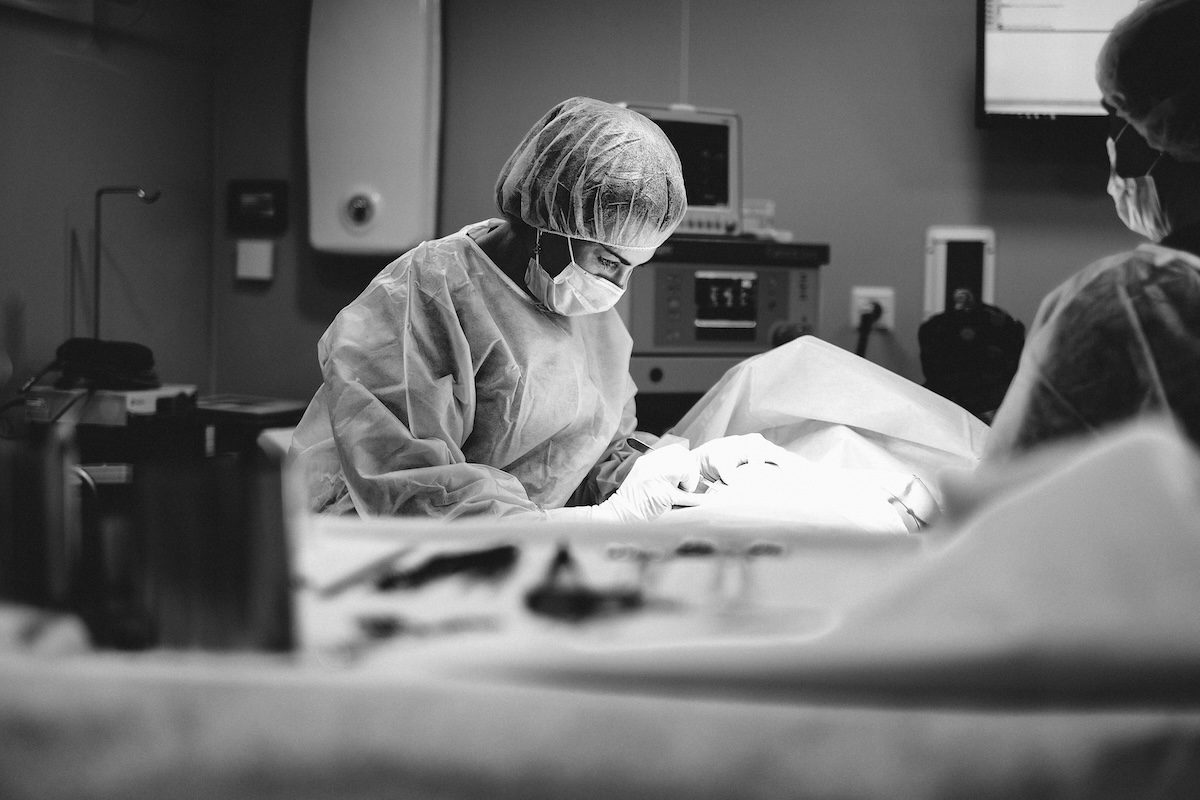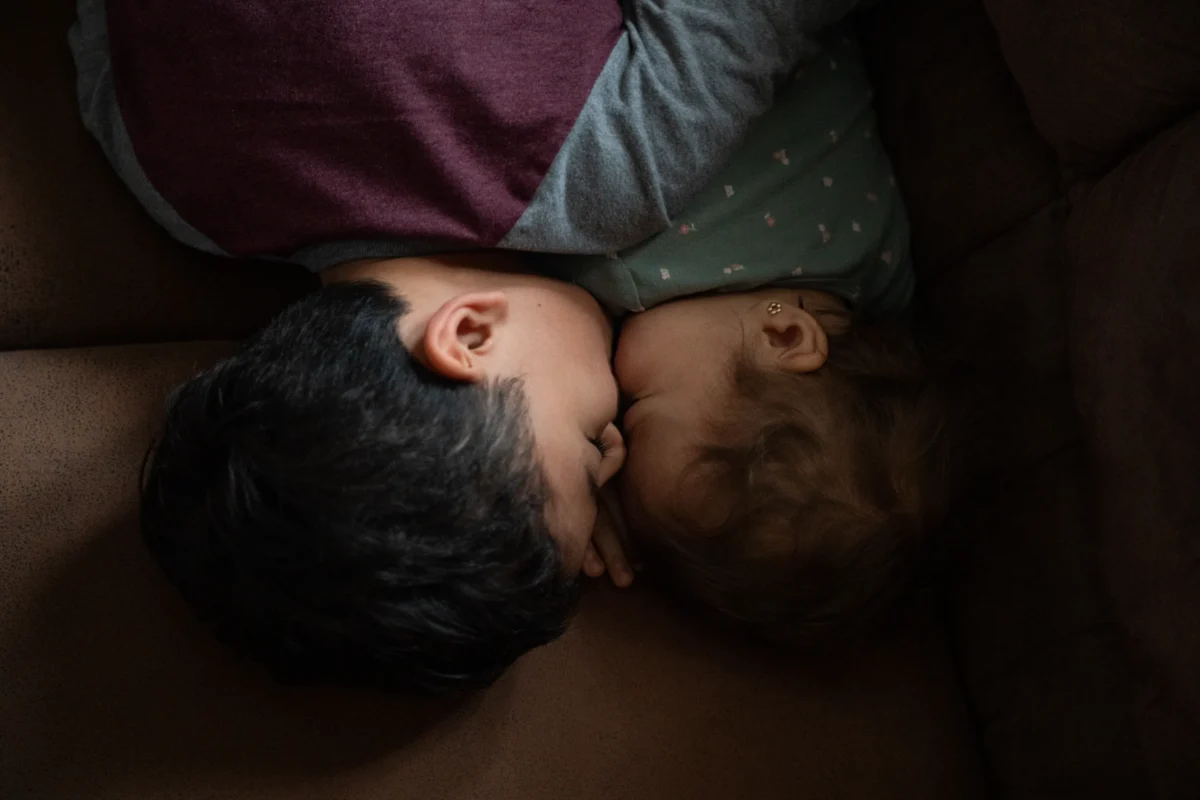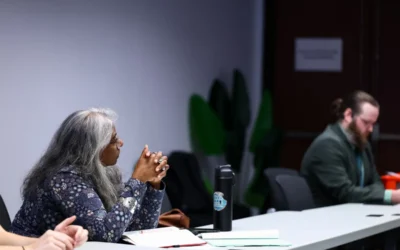
PHOTO SOURCE: PEXELS
Vi Burgess is a resident physician in Colorado, in training to specialize in obstetrics and gynecology. The Texas resident went to medical school in the Lone Star State, but says she’d be terrified to return home to practice medicine. Here’s the story she shared in an interview with COURIER Texas.
As told to writer Bonnie Fuller for COURIER Texas.
I made my decision to go to medical school in my home state of Texas based on a school that I thought was going to support my career. I wanted a school that was going to say, “We care about the science—but we also care about how patients live.”
I started at medical school in June 2021, and Texas’s first abortion ban—SB8—took effect in September. Editor’s Note: SB8, also known as the Texas Heartbeat Act, banned abortions after roughly six weeks’ gestation.
I’d be terrified to go back to Texas to practice as an OB-GYN after I finish my residency. I’d be absolutely terrified. It’s not so much that I’d be terrified of getting thrown in jail, but terrified that I won’t be able to provide care to a woman—and that would lead to serious harm or death.
I think that’s every doctor’s biggest fear—not being able to help and ultimately ending up hurting someone. But that’s the situation that OB-GYNs and other doctors are now in, in Texas.
‘When I signed up for medical school in Texas, I didn’t realize how bad it was going to be’
When the Supreme Court decision to strike down Roe v. Wade leaked (in May 2022), I was actually at a workshop organized through an international group that I belong to, called Medical Students for Choice. The workshop was ironically on how to do a manual aspiration of the uterus (a technique used to remove early pregnancy tissue from the uterus).
(When we heard about the court’s decision), I and all the other medical students there thought, “Oh sh**, this is really happening.” We all went to a protest against the ruling in Austin.
‘One night in the ER, the consequences became real’
By my second year in medical school, the effects of SB8 were getting more and more real. One night in the emergency room, the consequences just became so obvious in a real life way.
I remember seeing somebody who was having a miscarriage and very much wanted that pregnancy.
But they were juxtaposed side by side in the ER with another patient who was pregnant and very much did not want to have that pregnancy. For the patient who wanted to keep her pregnancy, we referred her to our reproductive endocrinology department. We had a way to help her.
But for the other patient, we had to say, “We’re sorry, you’re pregnant but we can’t give you any options.”
And I was like, this isn’t fair. This isn’t right. This isn’t what women’s health care is supposed to be about. It’s supposed to be about women getting autonomy over their bodies.
After SB8 became law, as medical students we knew it was going to be bad. But seeing people in front of you who are suffering from that law (and the Texas “trigger ban,” which became law in August 2022) is a very different thing.
You see it even in something as simple as patients being afraid to tell you their past reproductive history because they’re scared that you’re going to report them (if they may have had a past abortion).
Or you see it in the situations of women in Texas who get breast cancer while pregnant. There are treatments that can be offered when you are pregnant and treatments that can’t be offered.
There are situations where a termination might be in the best interest of the mother and treating her cancer, but that’s not an option that we can offer even if the pregnancy hormones are fueling her cancer. Not unless the cancer is immediately life-threatening.
The thing is that if a patient with cancer leaves the state to get a termination—and yes, there are patients who leave the state to do this—we don’t even want them to tell us. I don’t want them to get in trouble. There is a culture of fear among patients. If they tell us, is the doctor going to report them?
‘I wasn’t looking over my shoulder in Pennsylvania’
In my fourth year of medical school, I went out of state to a hospital in Pennsylvania, where I was able to learn a ton in the family planning clinic that I was working in for a month.
The first week in Pennsylvania (where abortion is legal), it was mind-blowing that I could walk into a room and say, “Hello, would you like an abortion today?” I wasn’t looking over my shoulder going, “Is there a camera going? Is the patient or anyone else recording what’s going on?” It was so freeing.
I almost cried the first time I saw an orange box of (the abortion pill) mifepristone. I was like, “It’s real!”
‘I grew up in Texas’
I grew up in Texas. My mom is a family practice physician and as a kid I thought that kind of sucked because she would be on call doing “doctor things,” but when I grew up I realized that her work was actually a really meaningful job, being able to serve people in their hour of need.
Now, I have just started my residency in Colorado (where abortion is legal). I’m thrilled to be in Labor & Delivery. I love being in the hospital here in general, seeing babies being born and providing contraceptive care. I am able to learn about abortion care here in Colorado, which I can’t learn in Texas anymore.
And I’m interested in doing a family planning fellowship, which is an additional two years of training and that will likely also be outside of Texas.
I don’t know where my path will take me. Aside from career goals, I have a partner and he lives in Houston and has a job in renewable energy, so we’ll have to see how that shakes out.
Being terrified is a huge incentive not to go back and practice in Texas, but then there’s also a fair amount of guilt. People in the state still deserve good care, even if it has nothing to do with ending pregnancies—like providing a high quality C-section or a really good hysterectomy without any complications.
It’s a risk calculus. I have friends who have stayed in Texas in obstetrics, and also who have moved outside of Texas. I can’t fault any of them for those decisions.
And for those of us in obstetrics in Texas, we have been kind of looking at each other and going, like, “I don’t want to be complicit in this (how the state’s abortion bans are killing women).”
‘I’m trusting you to help me’
As a medical student in Texas, there’s a big difference when you’re in the classroom and you’re learning about anatomy versus when you go into the hospital and you’re speaking with patients.
A main reason that I first wanted to become a doctor, particularly an OB-GYN, was because I was like, this is really cool that I get to talk to women about making choices. Do they want to have kids? Or not want to have kids?
It’s not like having a patient with high blood pressure and you can just say, here is medication that works. In gynecology you can have someone say, “I don’t want to be pregnant,” and we’re like, “Here are 15 options we can talk about and discuss. What would work for you?”
It’s been the world’s coolest experience to be able to learn to do that. It’s really been empowering for someone to walk in and say, “I’m having this problem that I haven’t felt comfortable discussing with anyone else, even my partner or friends. And I’m trusting you in this almost sacred space to help me address that problem.”














